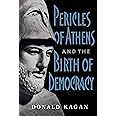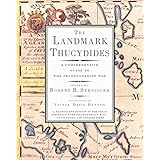
Enjoy fast, free delivery, exclusive deals, and award-winning movies & TV shows with Prime
Try Prime
and start saving today with fast, free delivery
Amazon Prime includes:
Fast, FREE Delivery is available to Prime members. To join, select "Try Amazon Prime and start saving today with Fast, FREE Delivery" below the Add to Cart button.
Amazon Prime members enjoy:- Cardmembers earn 5% Back at Amazon.com with a Prime Credit Card.
- Unlimited Free Two-Day Delivery
- Streaming of thousands of movies and TV shows with limited ads on Prime Video.
- A Kindle book to borrow for free each month - with no due dates
- Listen to over 2 million songs and hundreds of playlists
- Unlimited photo storage with anywhere access
Important: Your credit card will NOT be charged when you start your free trial or if you cancel during the trial period. If you're happy with Amazon Prime, do nothing. At the end of the free trial, your membership will automatically upgrade to a monthly membership.
Buy new:
-36% $13.99$13.99
Ships from: Amazon.com Sold by: Amazon.com
Save with Used - Good
$12.17$12.17
Ships from: Amazon Sold by: Jenson Books Inc

Download the free Kindle app and start reading Kindle books instantly on your smartphone, tablet, or computer - no Kindle device required.
Read instantly on your browser with Kindle for Web.
Using your mobile phone camera - scan the code below and download the Kindle app.

OK
Pericles Of Athens And The Birth Of Democracy Paperback – October 1, 1998
Purchase options and add-ons
An incisive portrait of Pericles is set against the shifting political trends, international tensions and relations, and intellectual movements of the ancient Greek civilization.
- Print length320 pages
- LanguageEnglish
- PublisherFree Press
- Publication dateOctober 1, 1998
- Dimensions6 x 0.8 x 9 inches
- ISBN-100684863952
- ISBN-13978-0684863955
Books with Buzz
Discover the latest buzz-worthy books, from mysteries and romance to humor and nonfiction. Explore more
Frequently bought together

Similar items that may deliver to you quickly
Editorial Reviews
About the Author
Product details
- Publisher : Free Press (October 1, 1998)
- Language : English
- Paperback : 320 pages
- ISBN-10 : 0684863952
- ISBN-13 : 978-0684863955
- Item Weight : 13.8 ounces
- Dimensions : 6 x 0.8 x 9 inches
- Best Sellers Rank: #411,284 in Books (See Top 100 in Books)
- #369 in Ancient Greek History (Books)
- #476 in Democracy (Books)
- #4,639 in European History (Books)
- Customer Reviews:
About the author

Discover more of the author’s books, see similar authors, read author blogs and more
Customer reviews
Customer Reviews, including Product Star Ratings help customers to learn more about the product and decide whether it is the right product for them.
To calculate the overall star rating and percentage breakdown by star, we don’t use a simple average. Instead, our system considers things like how recent a review is and if the reviewer bought the item on Amazon. It also analyzed reviews to verify trustworthiness.
Learn more how customers reviews work on Amazon-
Top reviews
Top reviews from the United States
There was a problem filtering reviews right now. Please try again later.
Donald Kagan, perhaps the greatest American classical scholar ever to live, is unabashed in his fondness for his subject in “Pericles of Athens and the Birth of Democracy,” a book first published in 1991 as the nations of the former communist bloc in Eastern Europe were beginning their shaky transitions to democracy. Kagan argues, “If the new democracies of our time are to succeed, they [like Periclean Athens] must offer more than economic prosperity.” They must see the intrinsic value in virtue, the rule of law, respect for individual rights, and political equality.
The author stresses that Pericles had no substantial wealth and no long-term of office to insulate him from the electorate. He was just one of ten annually elected generals and thus had to persuade his fellow citizens of the wisdom of his policies. Thucydides claimed that Pericles had once summarized the qualities necessary for a democratic statesman as “to know what must be done and to be able to explain it; to love one’s country and to be incorruptible.” The paradox at the heart of democracy – in our time as well as in ancient Greece – is that to be effective it requires freethinking and independent citizens on the one hand, and extraordinary individual leadership on the other.
Despite having limited primary resources (nearly everything we know about Pericles comes from just two sources: Thucydides, who was a contemporary; and Plutarch, who lived 500 years later), Kagan weaves together a complete and credible biography of the great statesman. The titles of the chapters (Soldier, Politician, Peacemaker, Visionary, Educator, Statesman, Strategist, Hero, etc.) spotlight the enormous and varied role that he played during his thirty years in public life. Above all, Pericles possessed a clear and mighty vision for his polis: “an imperial city at peace,” where reason and intelligence guided the people and their policies, not avarice or hubris. The achievement of that vision had two basic requirements: 1) a leader of extraordinary ability; 2) an outside world that recognized and honored Athenian sovereignty within the limits of its Aegean empire.
In Kagan’s view (not to mention Pericles’ own), Pericles met the first requirement. The second would be achieved by the tangible demonstration of Athenian invulnerability to Peloponnesian land power. Scholars from the time of Thucydides down to our own day have debated the causes of the Peloponnesian War endlessly. This book presents Kagan’s learned hypothesis on that timeless question.
Why did the war with the Spartans come when it did? Why did Pericles prove so obstinate in compromising over the Megarian Decree when nearly all of his other earlier diplomacy was a case study in moderation and graduated pressure (e.g. a purely defensive alliance with Corcyra, sending only 10 triremes to the Battle of Sybota, responding to Megara’s support of Corinth with only economic pressure)? The Spartans demanded that the Athenians rescind the Megarian Decree, which prevented the Spartan ally of Megara from trading within the Athenian empire. Pericles insisted that they submit the dispute to arbitration, as stipulated in their existing peace treaty. To do otherwise would be taking actions under duress, which would undermine their freedom and sovereignty. Thus, the great Peloponnesian War started over an issue of principle rather than the substance of the casus belli.
Kagan claims “[Pericles] believed that only one strategy could bring victory, and only he could impose and direct it.” War had to come when Pericles was still unchallenged, the influential protos amer who could convince the demos to adhere to a policy of passive defense. The Athenians would refuse battle in Attica. The Spartans would be allowed free reign to destroy their homes and crops while the men, women, and children of Athens hid behind the walls protecting their city. Meanwhile, the Athenian navy would launch amphibious attacks all along the coast of the Peloponnese, wearing down the enemy’s resolve to continue and leading to a negotiated settlement based on status quo ante, an agreement not much different than the existing Thirty Years Peace, but secure and lasting after the invincibility of Athens had been convincingly demonstrated. Pericles knew it would be a highly controversial and unpopular strategy to pursue, and only he (in his not-so-humble opinion) possessed the intelligence and nerve to execute it. “Pericles’ strength and uniqueness lay in his extraordinary confidence in reason and intelligence, especially his own,” Kagan writes, and it was “his stubborn adherence to reason [that] brought him down.”
Pericles believed that the Athenians needed to convince the Spartans that they were invulnerable and that the integrity and sovereignty of their empire needed to be respected. They would exhaust the Spartans psychologically by refusing to fight in the open to defend their homeland while bleeding Sparta and her allies. The fact that Pericles got his countrymen to voluntarily endorse such a plan places him, in the opinion of famed nineteenth-century German historian Hans Delbruck, “among the greatest generals in world history.”
The hawks among the Spartans believed that the war would be easy and short. The Athenians would either yield without a fight or come out and be decisively defeated. Therefore, any sign that the conflict would be neither simple nor painless would cause them to reconsider their strategy. For his part, Pericles relied heavily on the Athenians’ significant advantage over the Spartans in accumulated material wealth. Athens generated 1,000 talents a year from their empire via internal revenue (400 talents) and tribute from allies (600 talents). In addition, they had stockpiled 6,000 talents in their treasury on the Acropolis. Kagan estimates that it would cost roughly 2,000 talents a year to execute Pericles’ war strategy: 100 triremes harassing the Peloponnesian coast, 70 besieging Potidaea, and 30 defending the island of Euboea. Thus, by deduction, Pericles evidently believed that the Spartans would seek the desired negotiated settlement in less than three years. “A policy of restraint at home and abroad would sooner or later bring the friends of peace to power in Sparta,” Kagan says.
Pericles did not count on – and likely could not have foreseen – the devastating plague that hit Athens in 430. It would render his intelligently thought-out plan “a manifest failure.” The enemy simply refused to concede that they could not win. Even on his deathbed in 429, he “passionately clung to the path that his reason had laid out for him,” Kagan writes, and his successors stuck to it for an additional two years after his death. Thus, no matter how rational the intellectual underpinnings of his strategy may have been, it was faulty. It “should” have worked, but didn’t. Kagan argues that Pericles failed to anticipate and appreciate the powerful influence played by passion, pride, and the will to win. Men are often irrational, especially in times of conflict. Yet he never recognized nor acknowledges that he may have erred in his policymaking. “The difference between perseverance and disastrous inflexibility,” Kagan notes, “can be terribly thin.” And so it was for Pericles and his Athenian polis, which he had so skillfully shepherded to prosperity, power, and glory. “His strategy intended as a moderate device for persuading the enemy to make peace was too weak to bring victory but strong enough to cause anger and intensify the determination of the Spartans.”
In closing, “Pericles of Athens” is a fantastic and, I believe, an underrated book on Athenian strategy and the outbreak of the Peloponnesian War.
Kagan's sources are fairly limited, which is to be expected. He relies mostly on the famed account of the Peloponnesian War by Thucydides, the later writings of Plutarch, and the works of some of the famed literary figures of the day. Perhaps the greatest surviving symbol of Pericles's influence in Athens is the Parthenon. Democracy in Athens began under Cleisthenes, as Kagan mentions, but Pericles advanced this system by opening political participation and voting to more of that city's citizens. He also promoted a paying system for public service. It is tempting to try to compare our political system with the system in Athens (though quite different) and say that ours is more inclusive, which though true technically doesn't mean that the political system in Athens is any less deserving of a certain amount of admiration.
Athens was also an empire, though Pericles could persuasively argue its merits despite the seeming contradictions. Athens's wealth and prestige did not come without costs. Sparta and various other Greek people were suspicious and resentful of the growing influence of Athens. The Spartans, as Kagan claimed later in the book as the Peloponnesian War began, would claim the mantle of liberators of the Greeks. Pericles's policies were seemingly always guided by an intelligent, rational way of thinking. He tried to pursue the moderate course between the extremes, as Kagan states. This seems to become most evident in the opening scenes in the war against Sparta.
I find that moderation to be very admirable, even if his policies could be wrong on occasion, as the Peloponnesian War would prove. He was perhaps too stubborn in adhering to certain strategies, but he did what he believed was right for Athens. His ability to influence his fellow citizens was indeed quite remarkable. But even Pericles had enemies and for a while even he was cast out of office when things weren't going well for Athens in the early stages of the conflict. Pericles died in 429 BC, only two and a half years into the war that would last twenty-seven years. His military strategy had not worked, though very clearly thought out and believed by its architect. But one thing was sure, after his death, Athens would sorely lack that high-minded and able leadership that he represented so well.
This is the second book by Kagan I've read and he doesn't disappoint. He makes a strong case for Pericles and Athenian Democracy, though he can be critical, especially of Pericles's strategy for fighting and winning the war with Sparta. Then again, what if Pericles had lived longer? Makes for a great what if, but then again maybe it wouldn't have changed the ultimate outcome of the war. A fascinating period, but a tragic one.
Top reviews from other countries
However it must be pointed out that this edition is awful, the text is poorly printed, the images in the centre are next to useless, and it spoils what is otherwise a great read.
I don't know what went wrong with the publisher, but if there are other editions I would suggest buying one of those.











